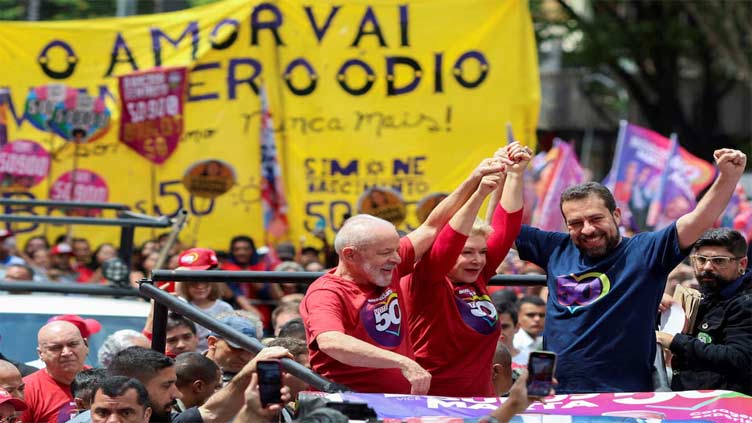Brazil votes in local elections with eyes on 2026 presidential showdown

World
All eyes are on the mayoral vote in Sao Paulo, Brazil's largest city
SAO PAULO (Reuters) - Brazilians voted on Sunday for mayors and city councilors in more than 5,500 municipal elections, with polls showing conservative candidates running strong in several major cities, setting the country's political landscape ahead of a 2026 presidential race.
All eyes are on the mayoral vote in Sao Paulo, Brazil's largest city, where three candidates are running neck and neck after an aggressive campaign, setting the stage for a second-round runoff on Oct 27.
Center-right incumbent Mayor Ricardo Nunes, who led the race until last week, is tied for second place at 26% of the votes with far-right digital influencer Pablo Marçal, an unprecedented split in the conservative vote, according to a poll on Saturday.
Leftist Congressman Guilherme Boulos, who is supported by President Luiz Inacio Lula da Silva and his Workers Party, has edged forward on the eve of the election and is leading the field with 29%, pollster Datafolha found.
Marçal, an anti-establishment political novice who has surged in the polls with his vitriolic attacks on adversaries, ran a social media campaign with little funding and no TV time. He has headlined the news for weeks since a furious fifth-placed candidate hit him with a chair during a televised debate.
Polls showed that candidates linked to Lula are facing trouble as the president's popularity has slipped in his third non-consecutive term.

"As long as democracy exists, the people's right to choose will exist, for better or for worse," Lula said after casting his vote on Sunday. "What we cannot allow to happen is that people vote uninformed."
He has largely avoided taking to the campaign trail for mayoral candidates, although their success would boost his chances in 2026, when he is expected to run for re-election.
On the right, candidates associated with hard-right former President Jair Bolsonaro have fared better, even though he was banned from seeking elected office until 2030 for his unfounded attacks on Brazil's voting system.
"The anti-establishment views of the right have become the trend," said political risk expert Creomar de Souza.
Lula's Workers Party is at risk of not winning a single state capital, noted Andre Cesar, analyst at Hold Legislative Advisors.
Both analysts said Lula likely kept his campaigning to a minimum to avoid being associated with losing candidates.

Bolsonaro also stayed away from the Sao Paulo campaign, which complicated his alliances. He officially endorsed Nunes for re-election, but avoided recording a video for his campaign.
He appeared to distance himself from Nunes as anti-establishment Marçal grew in the polls from a dark horse to within a whisker of the runoff. On Sunday, Bolsonaro said he would support anyone facing Boulos in a potential runoff.
Voting started at 8 a.m. (1100 GMT) and closes at 5 p.m. (2000 GMT). To win outright in the first round, candidates for mayor of cities of 200,000 voters or more need to gain more than 50% of valid votes.


